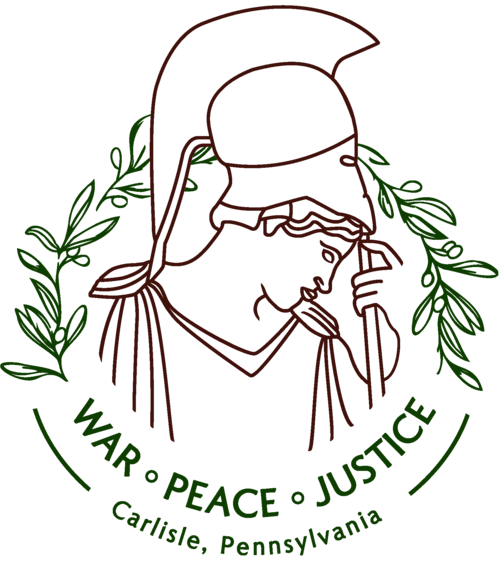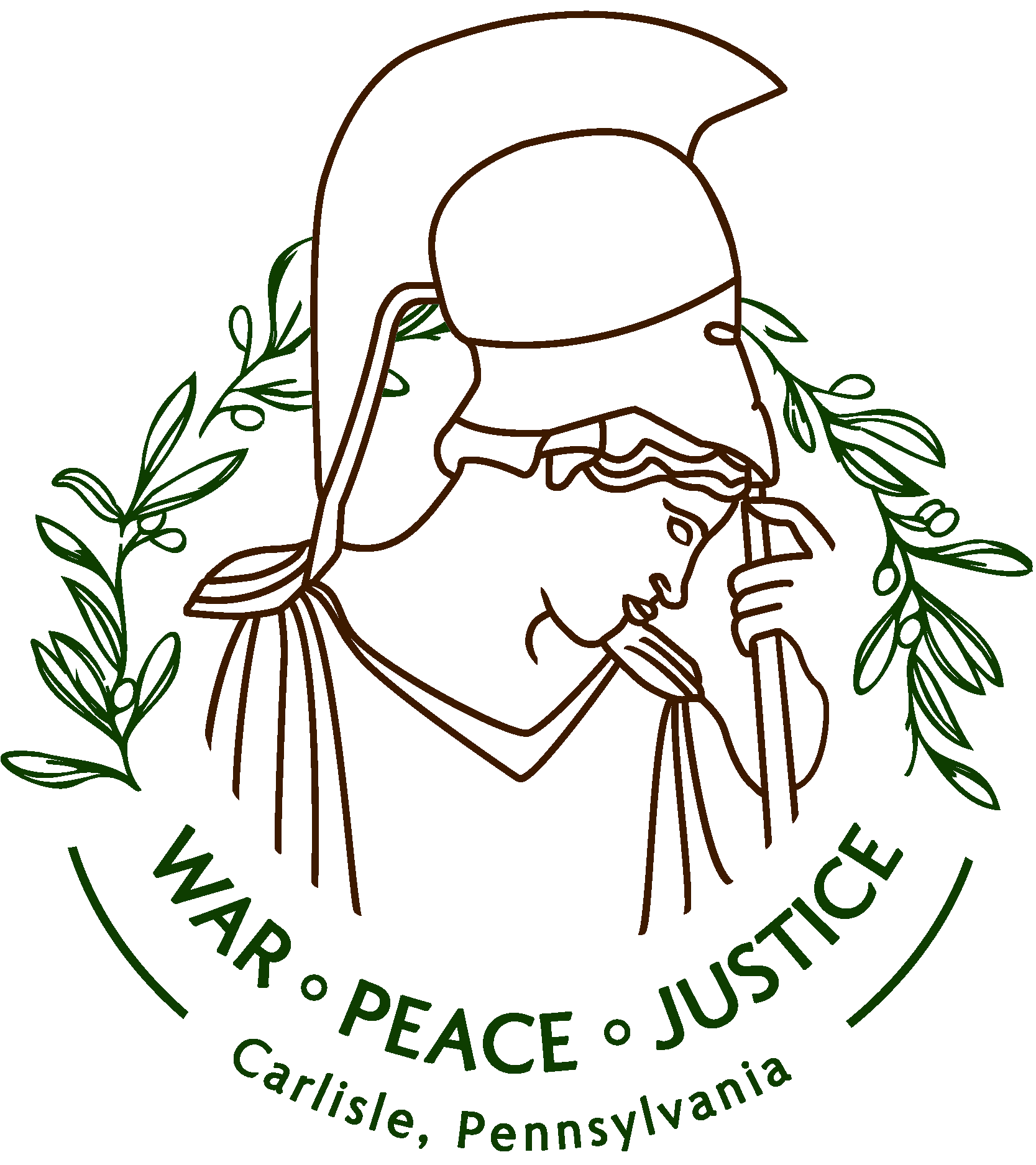War, Peace, and Justice Symposium
March 28-April 9, 2022, Carlisle, Pennsylvania
Our goal is to work for a better peace
through a deeper understanding of war and its consequences.
“The peace we seek and need means much more than the mere absence of war. It means the acceptance of law, and the fostering of justice, in all the world.”
What are the consequences of war? How can we achieve a better peace?
The War, Peace, and Justice Symposium will examine the vast impact of war, and seek options for peace and justice, through public dialogue and the arts.
This endeavor is the fruit of the friendship of a retired Marine colonel and a retired diplomat.
We, a group of military leaders and civilians, seek to effect long-term change in the way war is perceived.
Shared contemplation builds planks in the interpersonal bridge between civilian and military communities so that together, we can work toward a better peace.
The symposium will be a two-week event, free of charge, spanning multiple venues in Carlisle.
Join us for discussion with eminent military and civilian thinkers, including General James Dubik, General Sir Rupert Smith, and Dr. Elliot Cohen
— and for art, music, film, and theater experiences that illuminate the imprint war leaves upon the human soul.
Our community partners in achieving our goals include:
Why Athena?
The goddess Athena is featured in The Iliad and other ancient literature as a wise warrior, protector, and artisan who metes out justice.
In the image below, Athena contemplates the names of the dead of the Trojan War, etched into a tablet, while the poems dramatize separation of warrior and beloved.
Athena’s prominence in our logo signifies the need to ponder the impact of war, while actively working toward a better peace.
Moreover, she signifies that conflict has been with us since the emergence of humanity, and that we, like every generation, must address it in our era.
Mourning Athena, Marble Relief, Acropolis Museum, Athens, circa 470 BC.
Athena,
Greek mythological goddess
of wisdom and war,
is featured in Homer’s Iliad
as the warrior-defender,
protector of civilized life
and of artisan activities.
Hector to Andromache
I dreamt again of dry leaves rustling
Of winds howling off the shore
Carrying them away in great gusts
Till all were carried away.
It will be tomorrow, I think
Our final parting. Love for you
Tells me dishonor would be a small
Price for another moment together.
If we could but disappear,
I’d gladly surrender pride and glory
To keep you by my side,
My bride, my very life.
But we both know I must fall.
My men, my city, my family, even you
Demand I stand firm
Leaving you, our child,
Everyone I love to
Who knows what calamities.
My death, I fear, will be the easiest,
Quick as an eye’s blink,
And I’ll be spared knowing
What will follow.
Will the Greeks hold their honor?
Or will blood flow
like a river
With nothing sacred
And no one spared?
Since the gods shield us
From knowing the end,
Let my last glimpse of you Be your sweet smile.
Let's recall tender words we shared,
Give thanks for time together
For laughter and tears
And every moment
Life gave.
If she has nothing for us,
Let’s not berate her,
For what she gave was
All we needed to sustain us.
Andromache to Hector
No, my love, I won’t scold her, or you.
The trap we face
And what our end will be
Is all too clear.
And yes, I’ll smile for you.
But once you’re gone,
My heart will turn to something
More unyielding
Than the battle-hardened Greeks.
You say the gods spare us
Knowing all there is to come
But haven’t they shown us
Enough of war
To already hear the terrorized screams
And cries of despair that must follow?
And, as the gods calmly gaze,
The victors will ensure
Troy’s women more cause to weep
Than any man or boy who died.
For we will be their slaves
Forced to bear every humiliation
Hoping each breath will be our last.
Livecchi, John, Retellings: Homer's Characters Speak in Our Time, (c) 2018. Hear the author read his poems here.
“When we assumed the soldier, we did not lay aside the citizen.”









